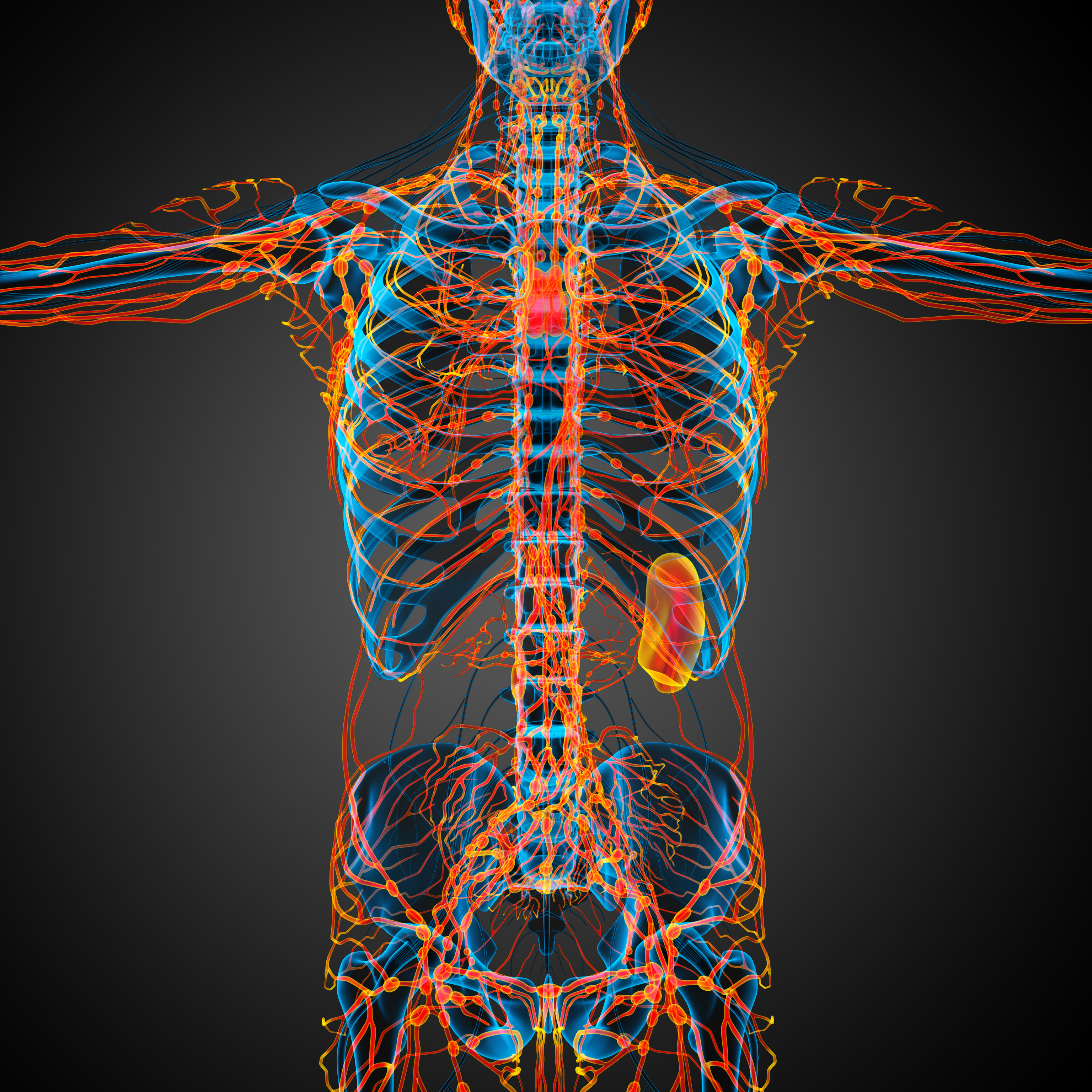

When you have strep throat, lymph nodes in your neck may swell. Often, swollen lymph nodes will be close to where the problem is. Swelling usually signals an infection of some kind, but it could also be from a condition like rheumatoid arthritis or lupus, or rarely, cancer. More immune cells may be going there, and more waste could be building up. Swollen lymph nodes are a sign that they're working hard. These store immune cells and act as filters to remove germs, dead and damaged cells, and other waste from your body. There are more than 600 small, kidney bean-shaped lymph nodes in clusters throughout your body - under your neck, in your armpits and groin, and in the middle of your chest and belly. Your doctor can help you figure out what's causing the changes in your body. Make an appointment with your doctor if you notice that your lymph nodes feel hard or immovable.When you have swollen lymph nodes, your first thought shouldn't be, "I have cancer." They're much more likely to be caused by infections or a disease that affects your immune system, and they will often clear up as your body heals.īut sometimes, cancer cells will travel through your bloodstream and end up in your lymph nodes, or even start there. However, enlarged lymph nodes can also be a sign that other types of cancer, such as breast cancer, have spread (metastasized) to your lymph nodes. When they are, it’s usually related to lymphoma or leukemia, which both involve the lymphatic system. Swollen lymph nodes are rarely caused by cancer. HIV, mononucleosis, and immune system disorders can lead to swollen lymph nodes throughout your body. A tooth infection might cause swollen lymph nodes around your jaw. For instance, swollen lymph nodes in your neck may be due to an upper respiratory infection. The location of the reactive lymph nodes can help you narrow down the cause.


Read on to learn more about reactive lymph nodes, what causes them, and when you should be concerned. Reactive lymph nodes aren’t caused by an infection or cancer within the lymph node itself. In fact, most of the time, reactive lymph nodes are harmless. However, it’s usually not a reaction to anything serious. This means your lymph nodes are reacting to something going on in your body. If you have a biopsy of a mass, you might also see a reference to reactive lymph nodes when you review your lab results. Your doctor may use the term “reactive lymph nodes” when examining you for a swelling or mass. The lymphatic system helps fight off infections and keep them from spreading. They’re part of the lymphatic system, which is also part of your immune system. They’re located in your neck, underarms, chest, abdomen, and groin. You have groups of small, bean-shaped lymph nodes all throughout your body. You might also hear this condition referred to as reactive lymphadenopathy. Swollen glands are actually swollen lymph nodes, which are often reactive lymph nodes. You’ve probably had swollen glands at some point in your life, such as when you’ve had a cold or other infection.


 0 kommentar(er)
0 kommentar(er)
